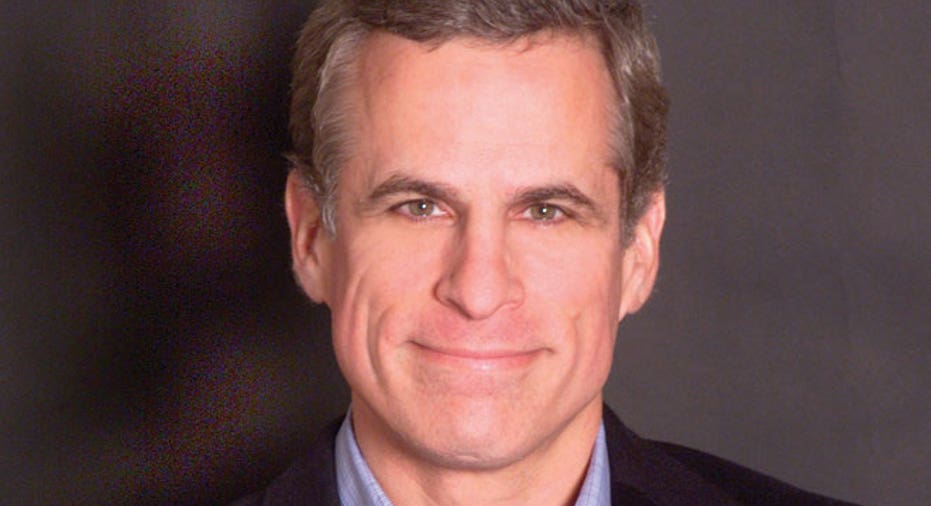Words You Wouldn't Expect From a Goldman Guy

Rob Kaplan was 48 years old when he decided to retire as vice chairman of Goldman Sachs Group Inc. (NYSE:GS).
The year was 2006, a mortgage-fueled U.S. economy revved full throttle, and Goldman Sachs was at the top of its game.
The U.S. economy had yet to collapse. Hank Paulson, the former Goldman Sachs chairman and Treasury secretary under President Bush, had yet to push for the once-unthinkable bailout of Wall Street's private investment banks. And Rolling Stone magazine had yet to brand Goldman Sachs the "great vampire squid wrapped around the face of humanity, relentlessly jamming its blood funnel into anything that smells like money."
Who leaves the world's most powerful investment bank during the world's greatest financial boom? Who walks away from multimillion-dollar annual bonuses to "retire" at age 48?
"What was it that Jerry Seinfeld said? You want to walk off the stage while they are still clapping for an encore," Kaplan told me in a telephone interview. "I've always remembered that...I tried to end while things were still good."
Leaving Goldman Sachs was brutally painful, Kaplan said, but also quite lucky. Kaplan had simply followed his muse. He liked working with clients, but over time, he felt his industry shift emphasis from clients to computer algorithms.
"Everybody thinks Wall Street is about making money," Kaplan said. "At the great firms, the vision is about serving clients."
Kaplan opened a new chapter in his life as professor of management practice at Harvard Business School. He wanted to take the good that he gathered in 22 years at Goldman Sachs and share it with hundreds of CEOs and business leaders.
He's now out with a book, What to ask the person in the mirror? Critical Questions for Becoming a More Effective Leader and Reaching Your Potential. It's garnered endorsements from Mohamed El-Erian, CEO of investment-management giant Pimco, as well as supermodel Tyra Banks, who looks good in any mirror.
Imagine a leadership book written by an actual leader--as opposed to a self-appointed guru. Imagine a Goldman Sachs guy who looks in the mirror and asks questions--as opposed to just excessively preening himself. And imagine a kid from Kansas, springing up like a sunflower to land one of the top jobs on Wall Street.
Kaplan grew up in Kansas City, the son of a jewelry salesman, and went to the University of Kansas before getting his MBA at Harvard in 1983. Perhaps this is why he says things one wouldn't expect from a former Goldman Sachs guy.
"How many legs does a cow have if you call its tail a leg?" Kaplan asks, raising a question often attributed to President Lincoln. "The answer is four. Just because you call its tail a leg, doesn't make it a leg."
Kaplan is also fond of paraphrasing Einstein: "Not everything that counts can be counted. And not everything that can be counted, counts."
His point: "A record year does not make a great firm."
Kaplan's book is about asking the right questions, to create the right vision, to establish the right priorities, and then matching the way one's time is spent to the priorities one sets, which isn't easily accomplished.
"How can we make more money?" and "How can we make our quarterly numbers?" are the wrong questions. Leaders who begin here fall astray. The question has to be, "How can we best serve customers and add value?"
"The money and the financials follow." Kaplan said.
In a speech to graduates last May, Kaplan discussed the "MBA Oath" some business schools have adopted after taking a hard look at the some of the graduates they've unleashed upon the earth.
Kaplan encouraged graduates to write down their most strongly held beliefs. "Examples might include: treat people with respect; ...if you have someone over a barrel, don't take advantage of it; transparency is vitally important; business should have a positive impact on the community," he said.
He also suggested writing down the ethical boundaries they would never cross, such as, "I will never lie, cheat, steal."
It's important to think all this through before something like an unexpected market freefall demands compromises. "These events happen in a nano-second," Kaplan said.
A few other thoughts you wouldn't expect from a former Goldman Sachs guy.
- "Two tax cuts and two wars put us in a box."
- It's time to raise taxes on the rich, even rich guys like him. This won't hurt most of the small businesses with the best potential to create jobs since most are under the $250,000-a-year income threshold for tax increases. "If you carve out doctors, dentists, law practices and investment partnerships, I think you'll find there's not many small business left," Kaplan said.
- It's time to rescue the nation's overleveraged, under-employed and foreclosure-stricken middle class. "The engine of a country is its middle class," Kaplan said. "You show me a growing middle class, and I'll show you a growing country and a healthy financial sector."



















